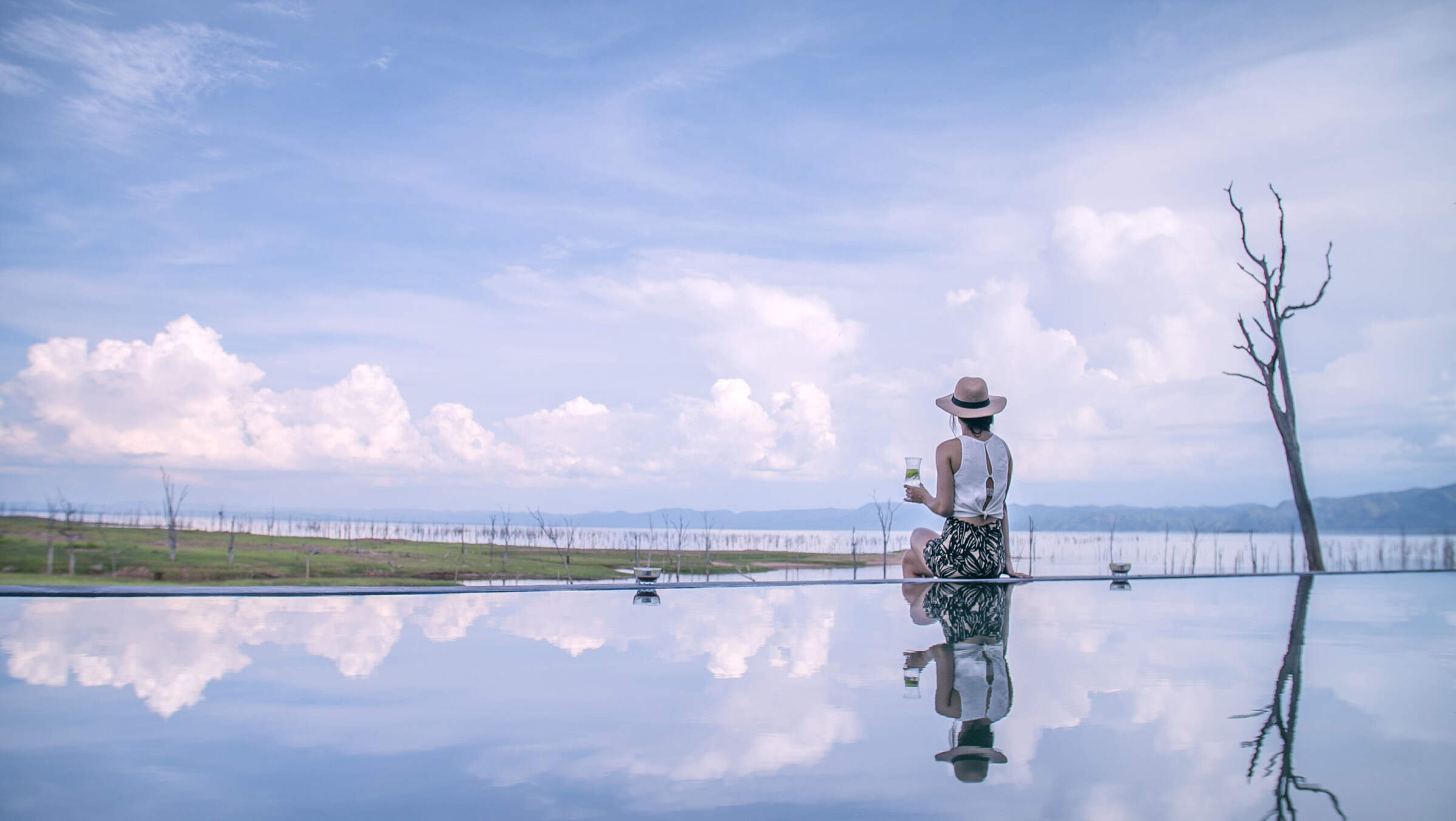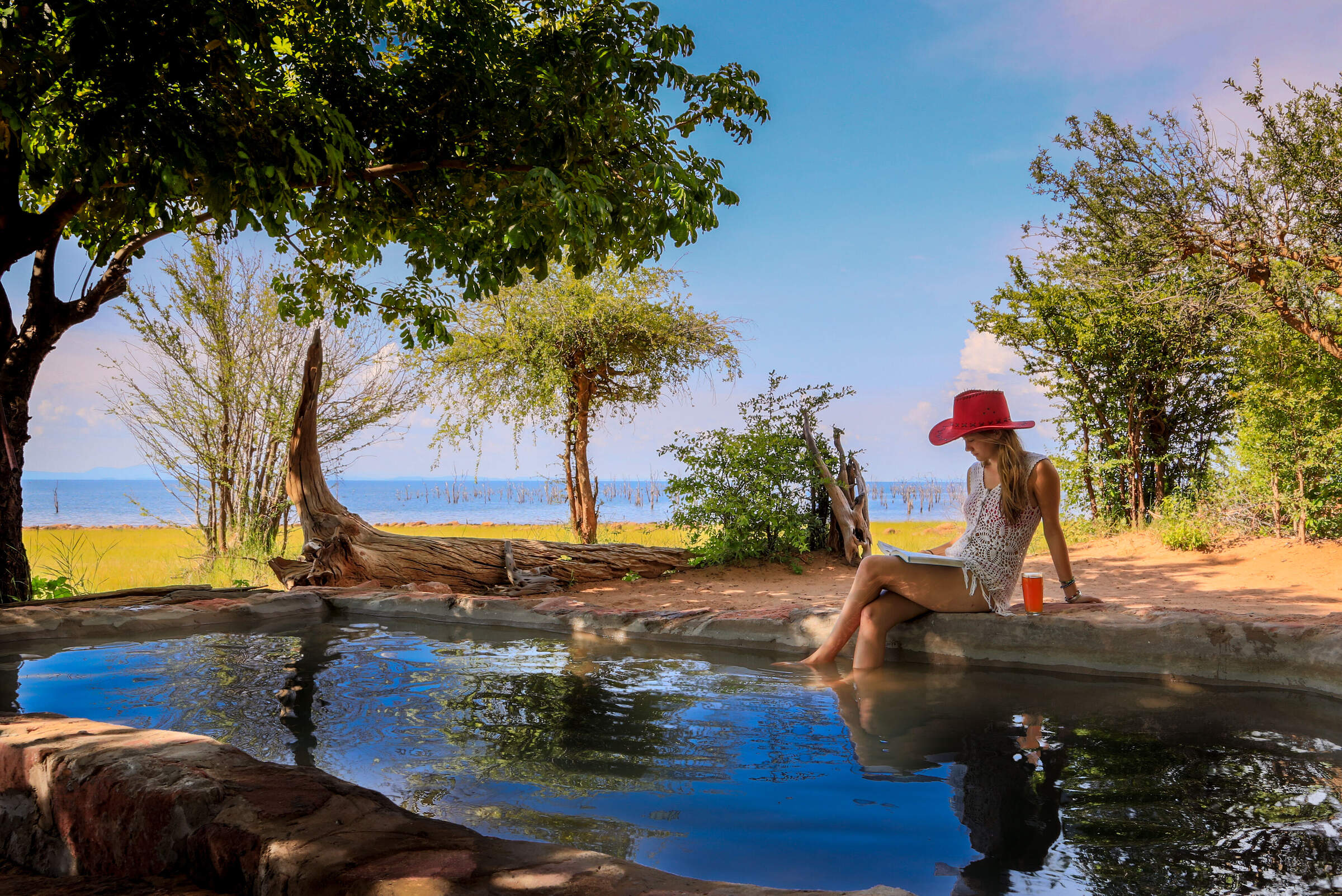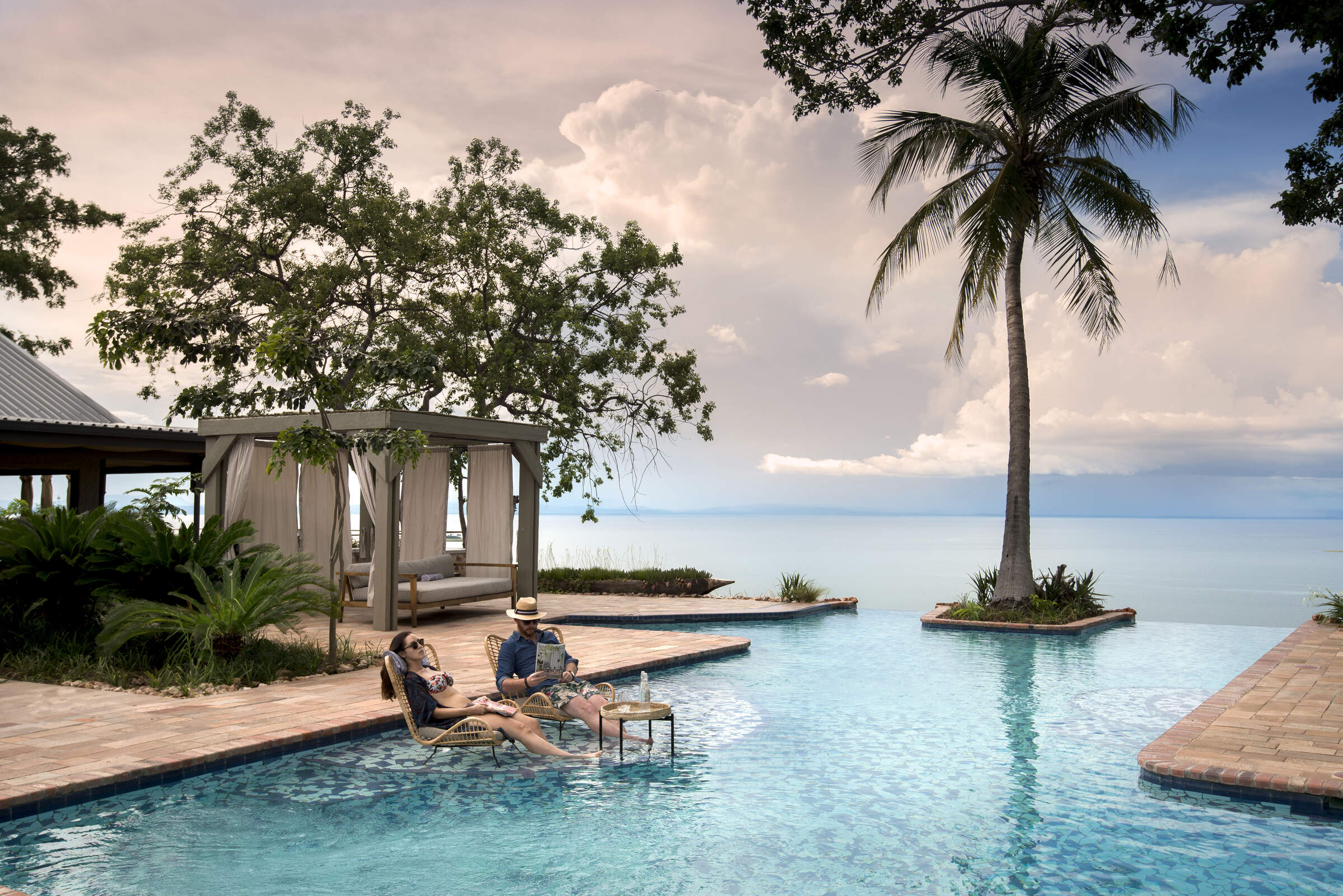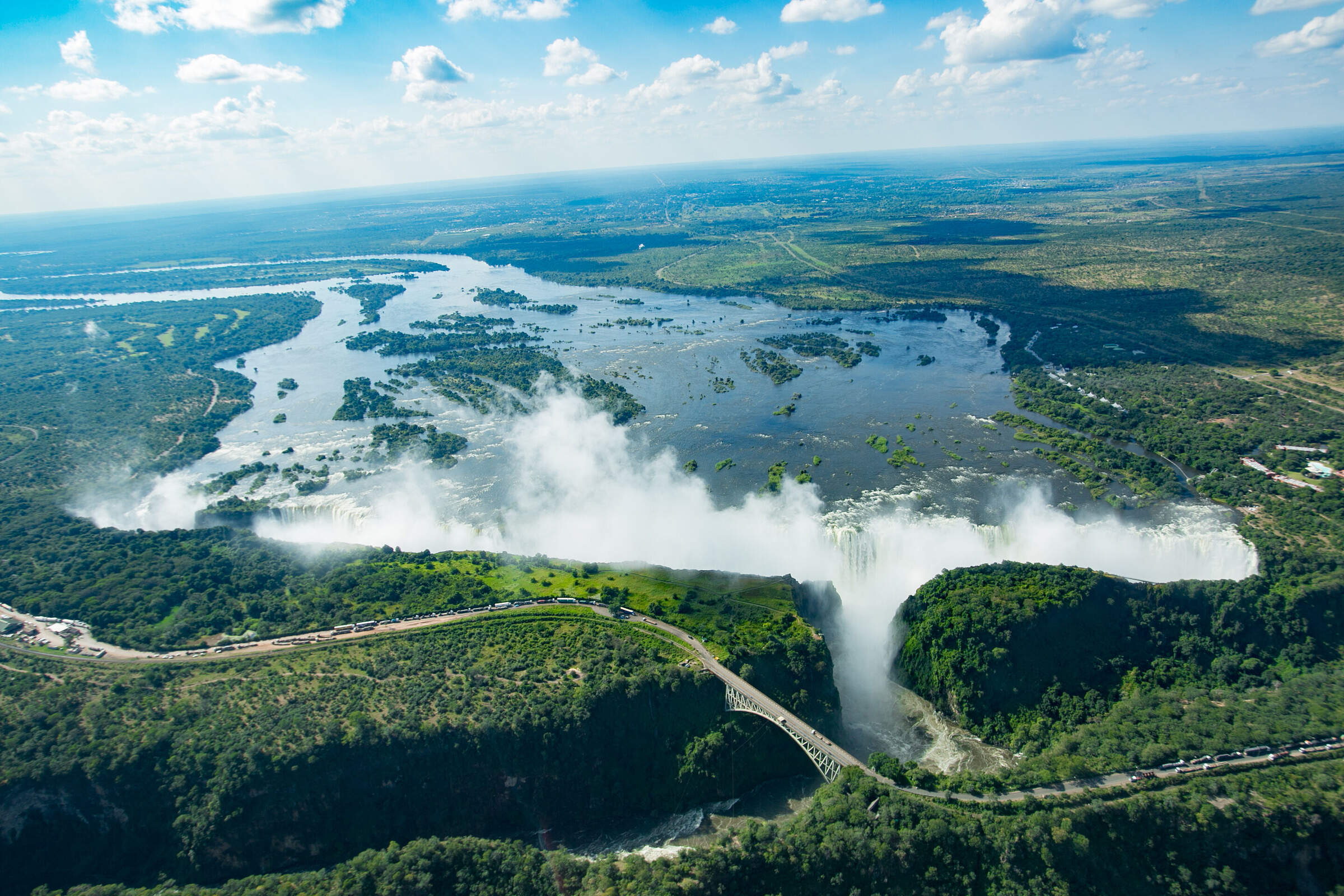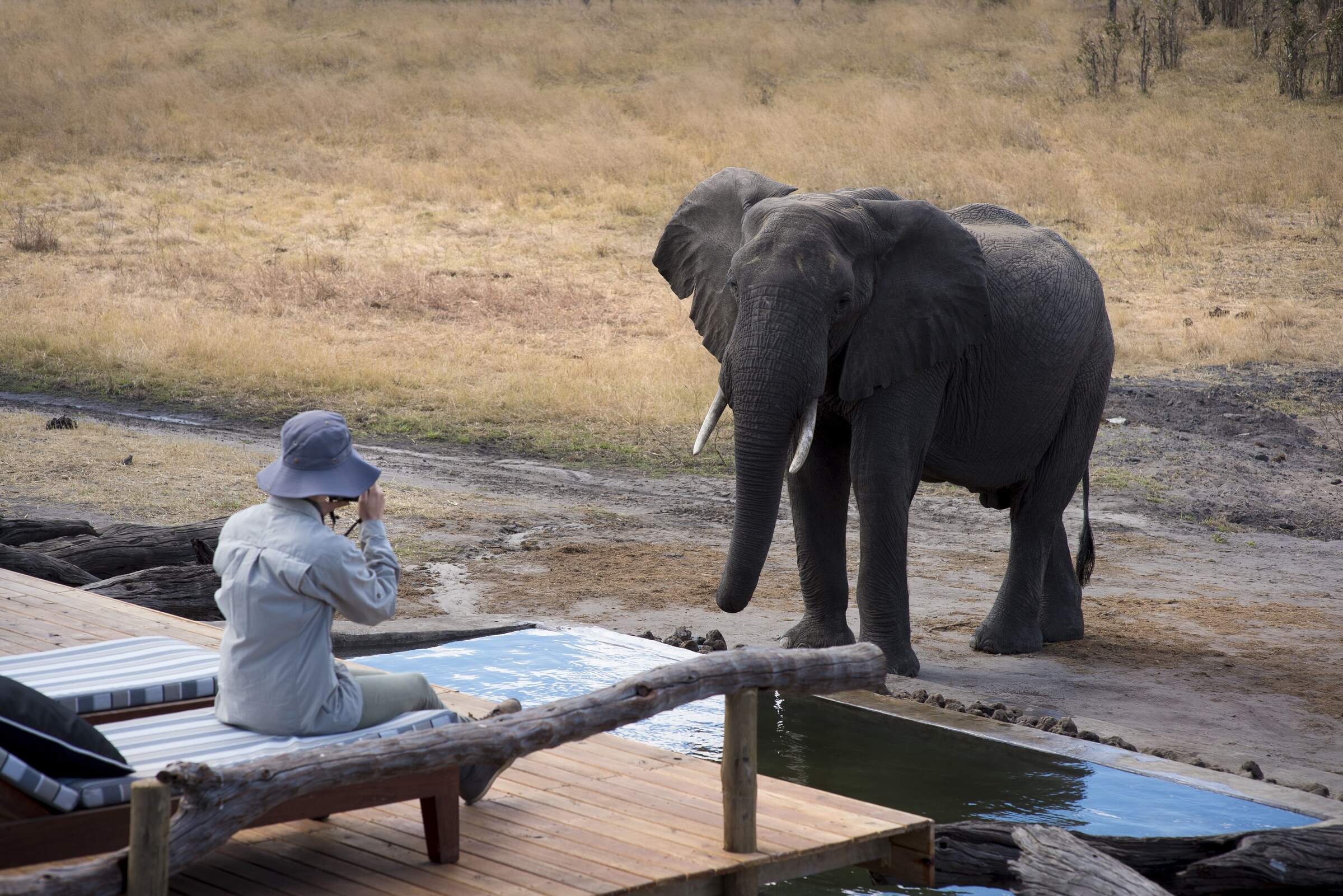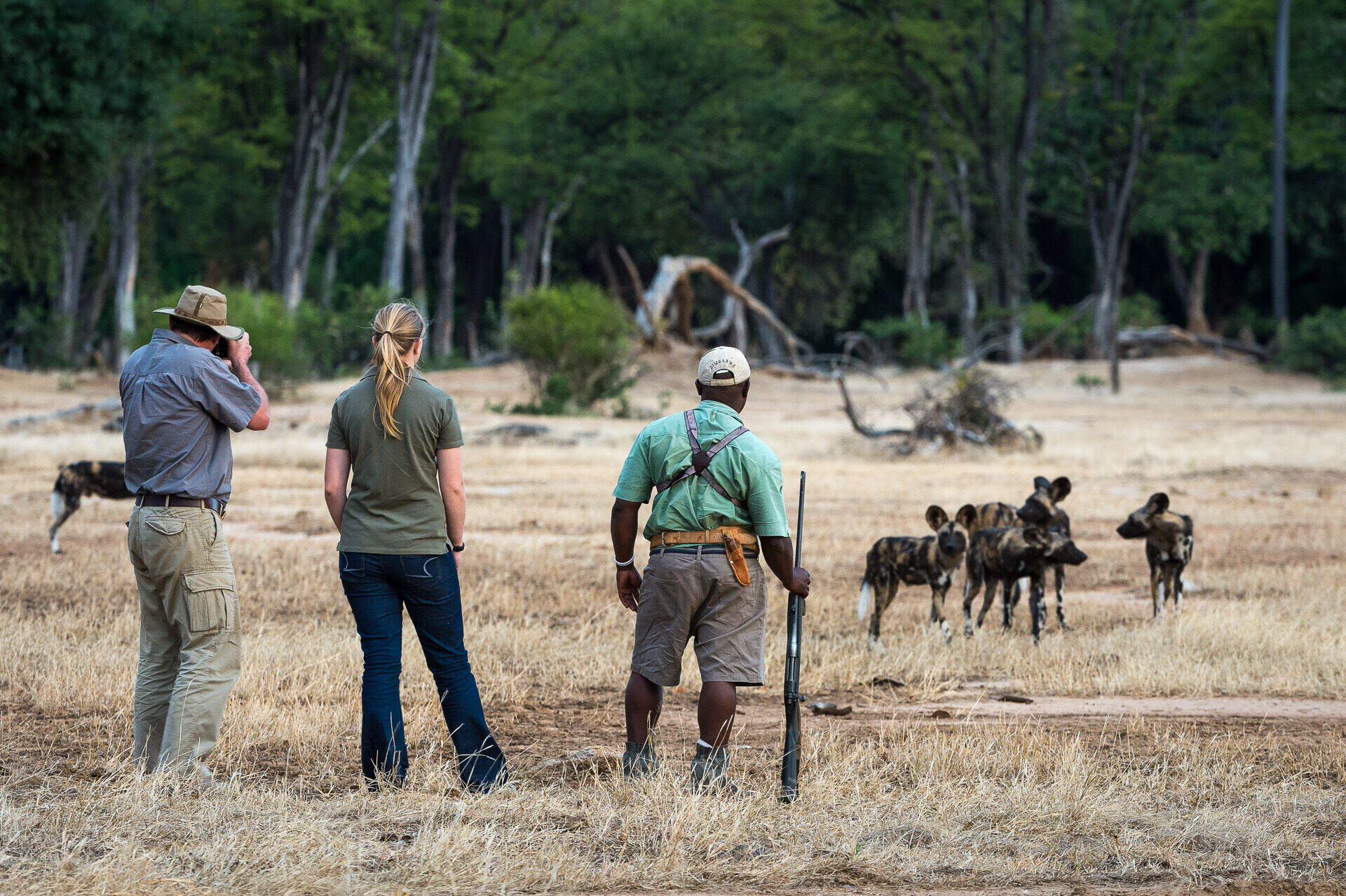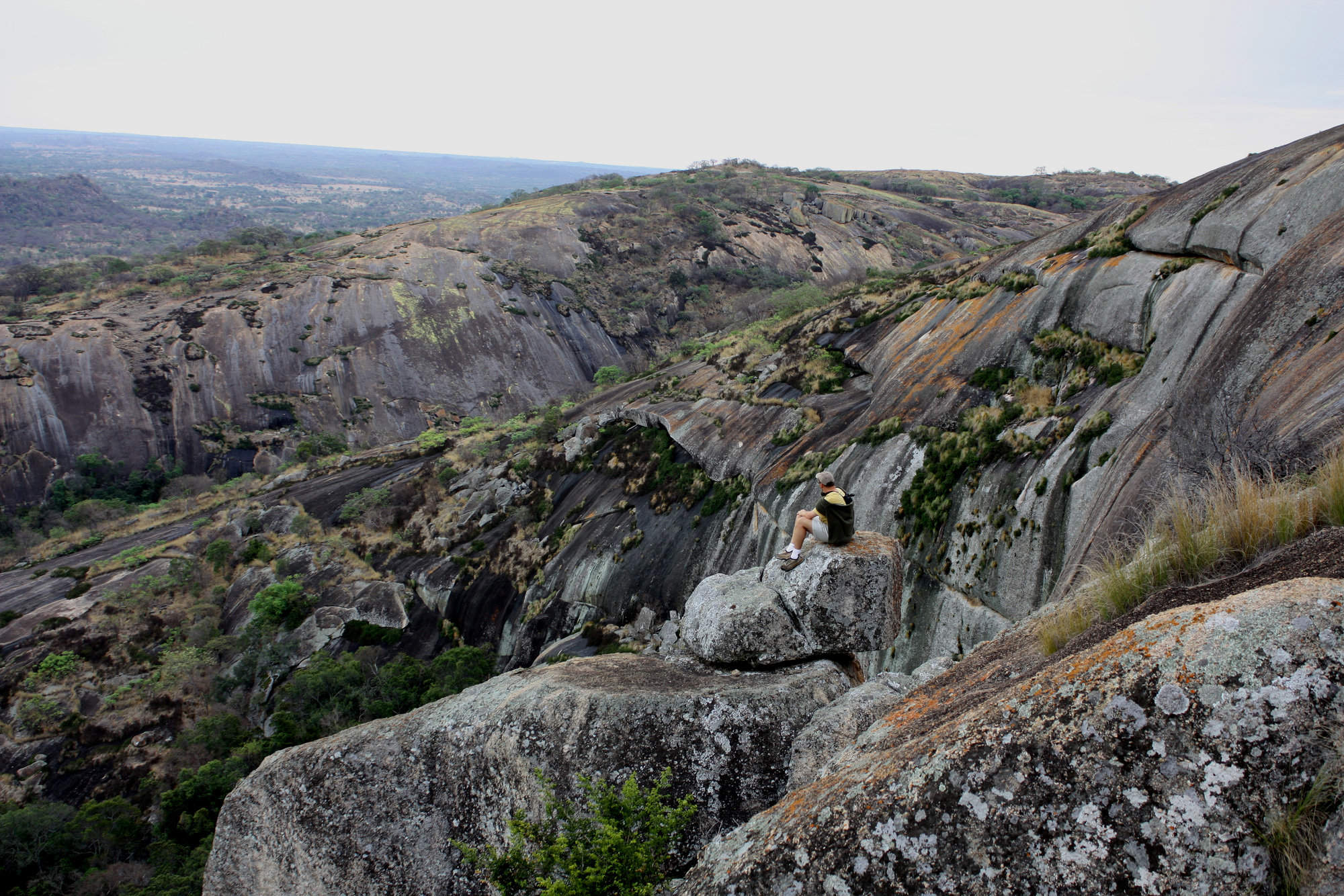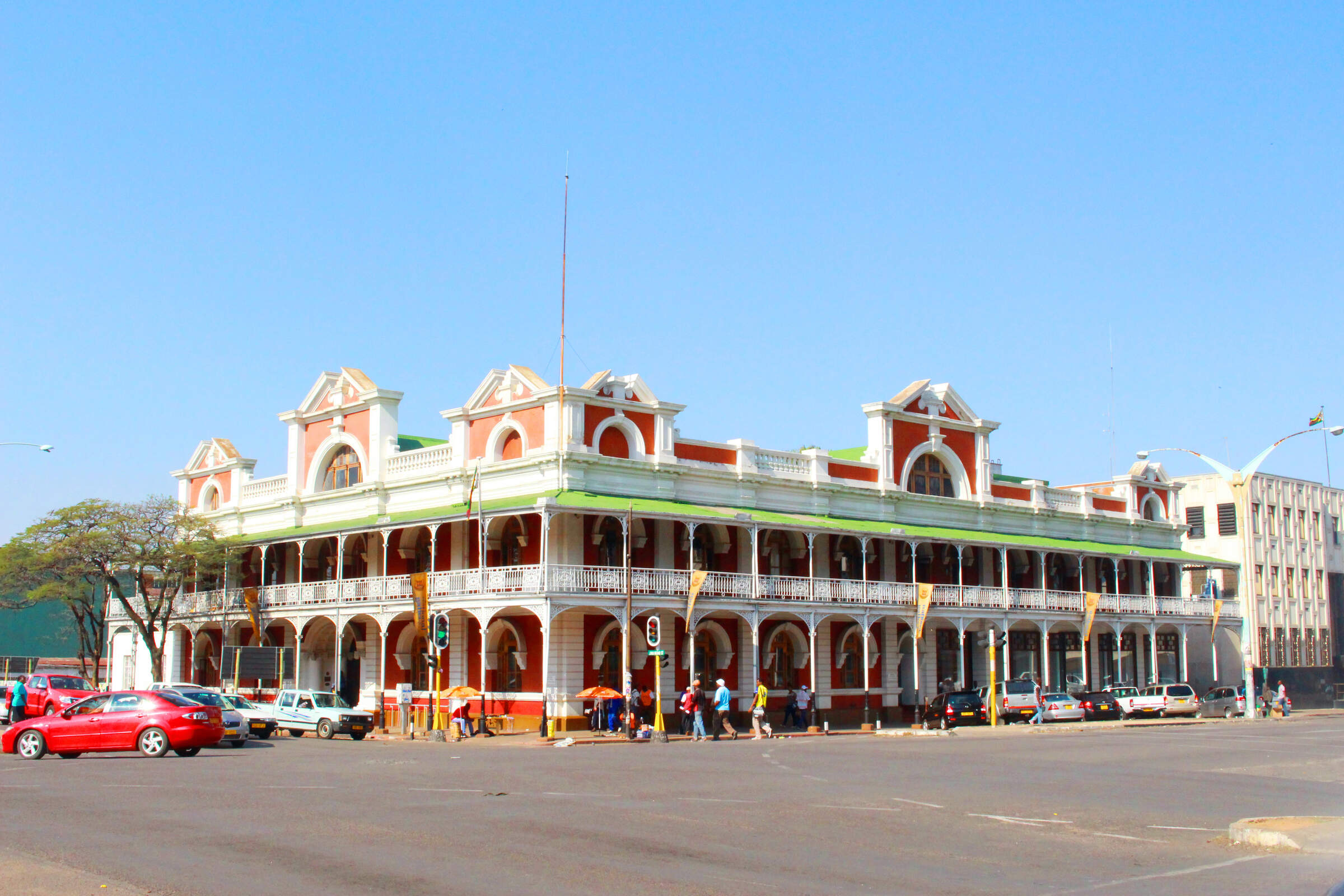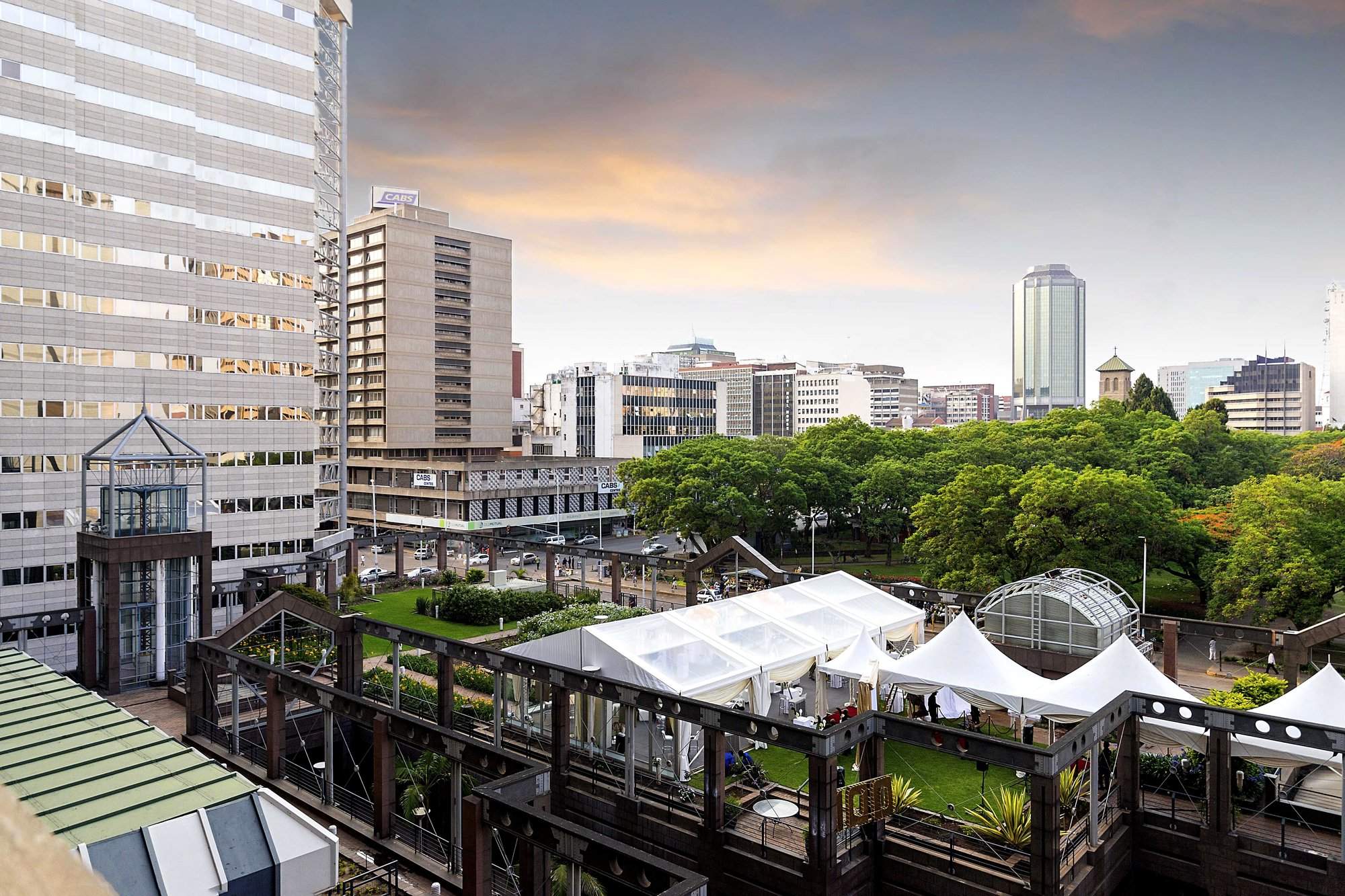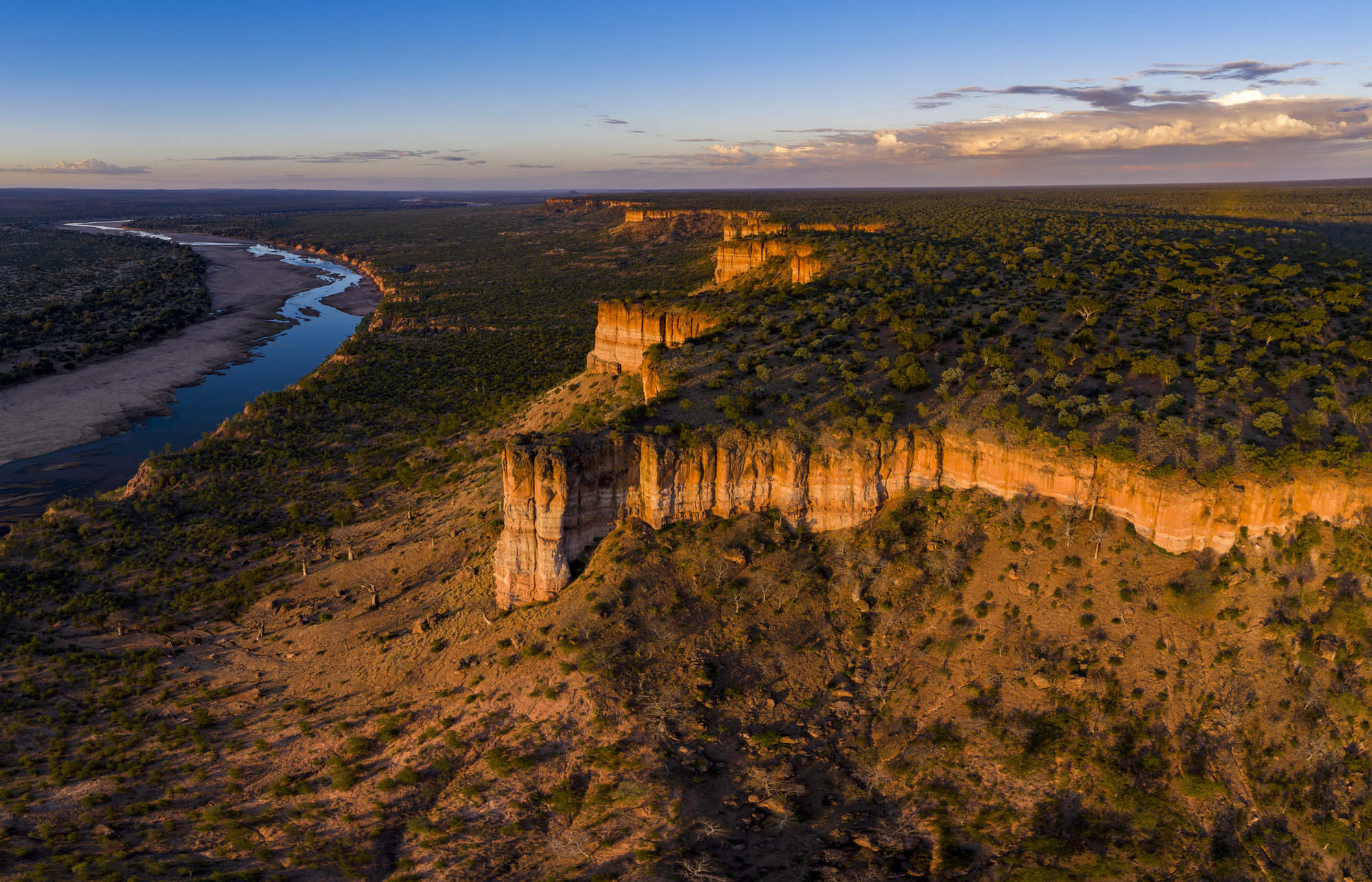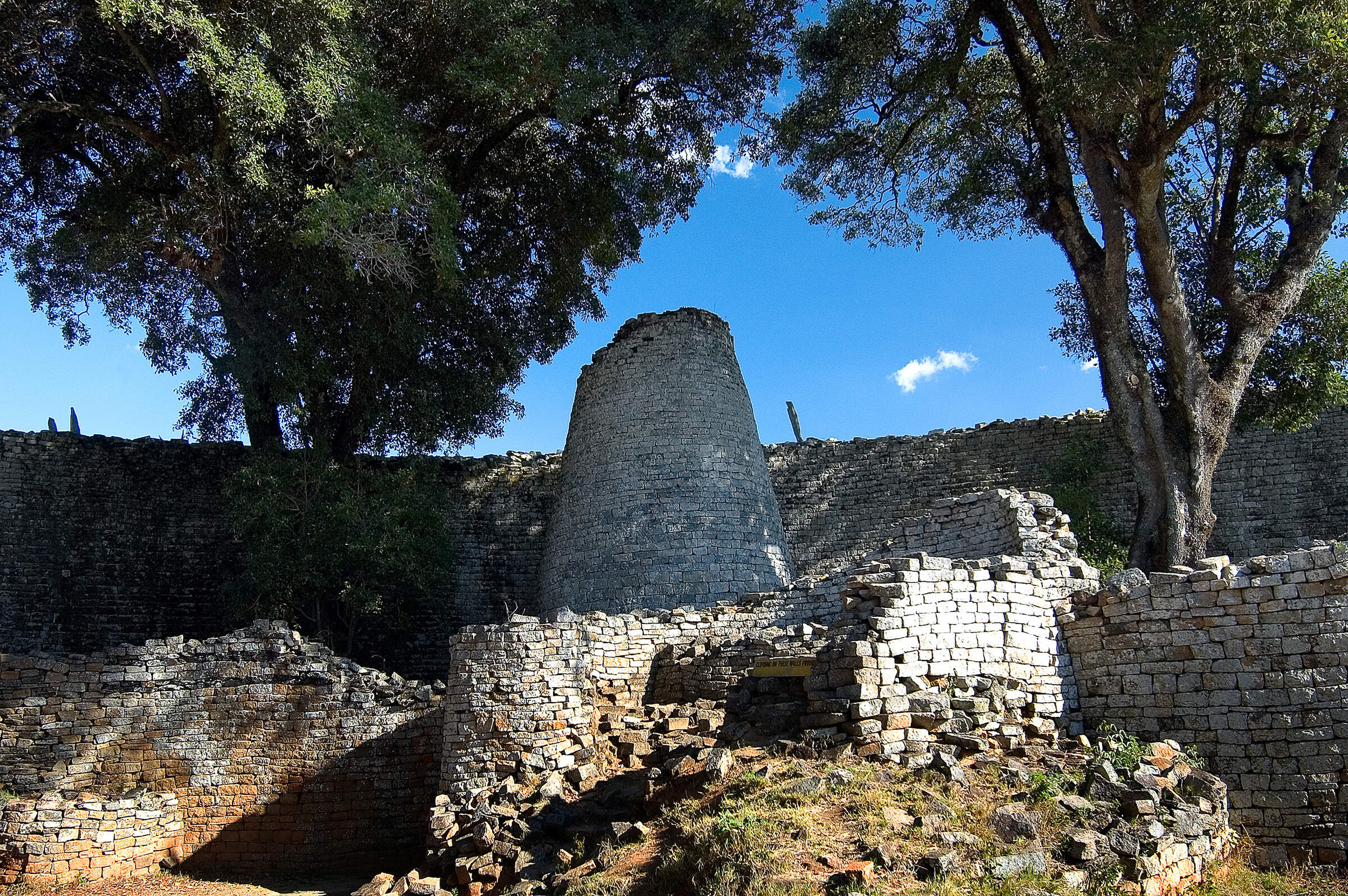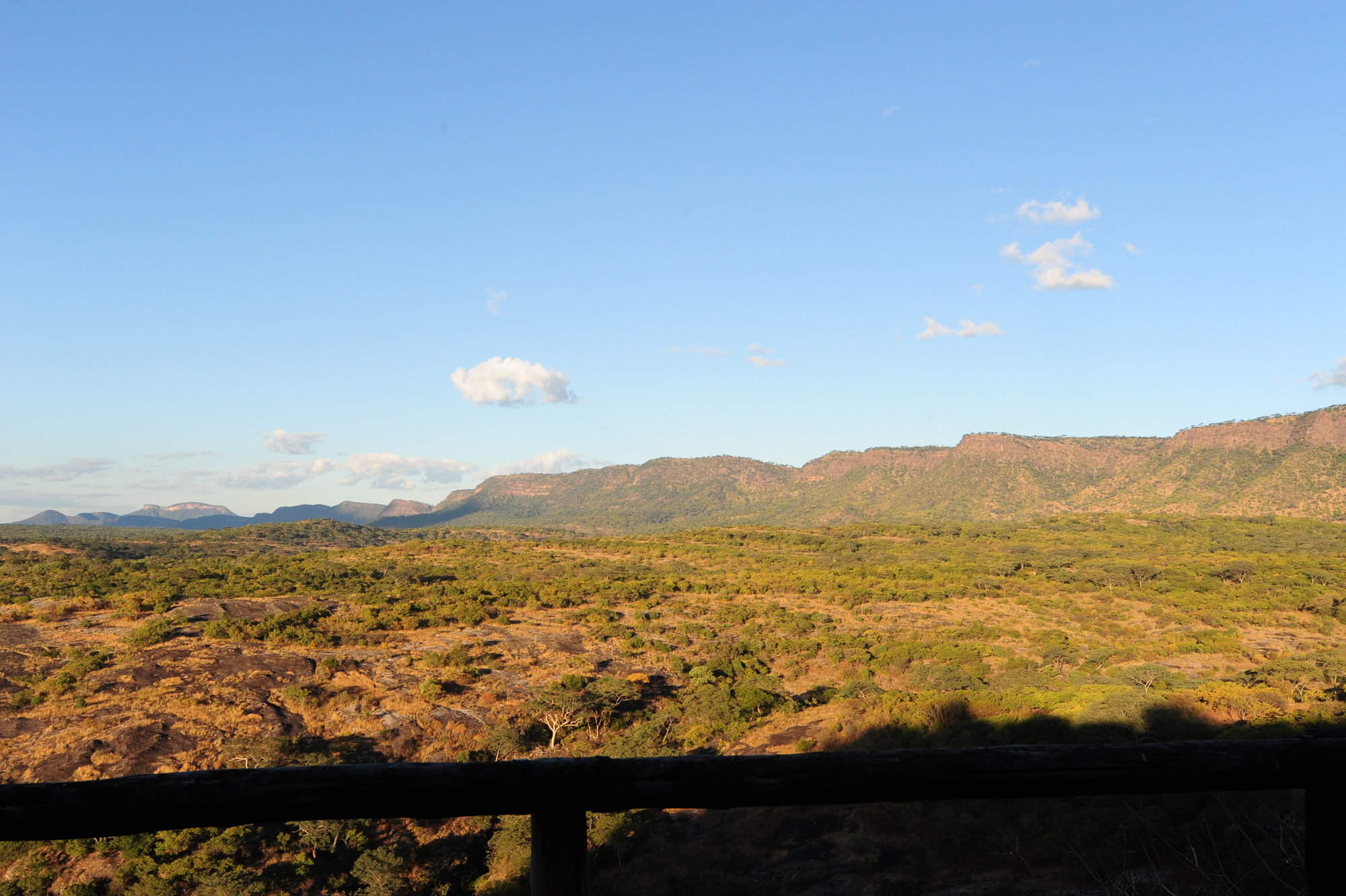Musango Safari Camp: Our full report
On an island on Lake Kariba, close to Zimbabwe’s Matusadona National Park, Musango Safari Camp was set up ...
... in 1990 by the park’s former head warden, Steve Edwards. Steve is a Zimbabwean guide of considerable note who, with his wife Wendy, still owns and manages the camp; they are often found in residence here. Steve's breadth of knowledge goes far beyond the wildlife of the area, encompassing the local landscapes, ornithology and paleontology, and this is reflected in the wide variety of activities available at Musango.Just a short boat ride from the mainland brings you to Musango’s island, a 1 km stretch of land created when Lake Kariba filled up between 1958 and 1963. Depending on water levels the island is occasionally connected to the shore by a small land bridge.
Built under a shady canopy of trees Musango Camp has eight tented chalets, each set on a raised, polished concrete plinth in dense bush. At the front, partially shaded by a thatched roof, is a veranda overlooking a small private lawn and garden, with a couple of large wooden chairs facing east towards the lake – and the sunrise.
Inside the tents, comfortable twin beds with reading lights above them share the lake view. There's a basket for laundry, a box with extra blankets, a couple of chairs and a table with a flask of water. The back of each tent leads into a semi-open stone-walled en-suite bathroom which incorporates under the thatch a hot shower, a ceramic washbasin and a flushing toilet in its own cubicle, as well as a luggage rack.
On our most recent visit in October 2018 we were lucky enough to stay in one of Musango's two honeymoon suites. Similar to the standard chalets, each of these boasts a larger bathroom, a double bed and an inviting private plunge pool as part of a more spacious veranda. The plan is for each of the chalets to have its own pool, but the roll out is going slowly.
From the chalets, gravel paths lead through the bush to Musango's main area, a unique wood-and-thatch double-storey building. On the ground floor is a lounge and reception area, with a well-stocked bookcase, and a crescent-shaped dining table, where evening meals are usually served en famille – often joined by Steve and Wendy. The walls are decorated with local arts and crafts, as well as maps and photos of the area.
The upper deck, where breakfast and brunch are often taken, is large, airy and spacious with a few comfortable deckchairs positioned to take advantage of the views across the lake.
In front of the main area, and partially incorporated into it, is a swimming pool, while lush planting and well-maintained lawns create a cool and restful oasis in the African heat – and a lovely location for alfresco meals when the weather is good. The whole camp is surrounded by an electric fence, an unusual feature in Zimbabwe but it means that guests can walk around unescorted at night.
Land-based activities from Musango include walking safaris in Matusadona National Park and game drives, both led by experienced professional guides.
Sadly, Matusadona Park has suffered from a lack of investment over the last couple of decades and wildlife numbers have dwindled so it is no longer the wildlife destination it once was. All the same, the park is home to a fantastic variety of birdlife and there are still pleanty of elephant, buffalo and plains game, which in turn attract lion, so with a little patience there is still much to see.
On the water, guests can go fishing for tigerfish, which are found in abundance in Lake Kariba, along with vundu and bream. (In the past, the world record for the largest tigerfish caught on a fly rod was broken near Musango Safari Camp.) Game viewing and fishing from a motorised pontoon offer a steady option for photographers and the boat's flat bottom means there's plenty of space to move around for different angles, as well as to store camera and/or fishing equipment. Steve is himself a birding enthusiast and we saw upwards of 60 species with him during our morning cruise. Watching a hunting fish eagle was a highlight although we missed the Pel’s fishing owl that Steve informs us is usually around.
There is usually an option to visit a typical fishing village from Musango, which provides a different, more human aspect to a trip. On a previous visit we particularly liked the emphasis placed on the important role that local people play in wildlife conservation, and felt that these trips were handled very sensitively. There’s clearly a good relationship between the lodge and the villagers, perhaps fostered by the fact that Steve and Wendy’s was one of the few camps that remained open throughout Zimbabwe’s troubles, providing valuable support and income for the local community.
To add to the mix, Steve is a keen paleontologist and has discovered a dinosaur fossil site in the park. He has a small fossil collection at the camp that he is keen to show to guests
Our view
One of the oldest properties in the Matusadona area and one of the simpler options, Musango is clean, and functional in design. However, the lodge itself isn’t the primary attraction. Come rather for the lake, excellent birdwatching, personal, attentive but unfussy service and high-quality guiding. Steve and his small team have a deep knowledge of not just the flora and fauna, but also the wider cultural and conservation aspects of the area. With its island location, Musango also makes a fantastic place to relax, usually at the beginning or end of a safari.
Geographics
- Location
- Matusadona National Park, Zimbabwe
- Ideal length of stay
- We recommend two nights minimum at Musango, but 3–4 nights would be better. Note that Steve's guiding is a major attraction for many guests, so if this is important, let us know; it's often possible for us to check in advance if Steve is likely to be able to guide on a particular date.
- Directions
- Most guests fly in to Bumi Hills airstrip, from where it's a 15-minute transfer by speedboat or 45 minutes by 4WD, followed by a short boat transfer to the island. It takes about 1¼ hours to fly to Bumi from Victoria Falls.
- Accessible by
- Fly-and-Transfer
Food & drink
- Usual board basis
- Full Board & Activities
- Food quality
- When we stayed at Musango in October 2018, the food was tasty and wholesome. With prior notice the kitchen is able to cater for most dietary requirements.
Breakfast is usually a fairly light buffet of yoghurts, cereals, cold meats, cheeses, fresh fruit and freshly baked bread.
Guests return from the morning activity in time for brunch. On our visit this was an excellent and generously sized moussaka served with an impressive selection of salads, cold meats, cheese, crackers and more homemade bread.
Tea, coffee and cake were served after the afternoon siesta, and before the day's second activity.
For dinner we started with Thai vegetable soup and fresh bread rolls. Our main course of beef Wellington, roast potatoes, beans, carrots and gravy was excellent and very filling, meaning there was little space for the crème caramel dessert. This was particularly memorable evening as we were treated to dinner in a very special, and quite unusual location! - Dining style
- Group Meals
- Dining locations
- Indoor and Outdoor Dining
- Further dining info, including room service
- Private dinners can be arranged on request – if you’re celebrating a special occasion let us know and we can arrange something suitably romantic.
- Drinks included
- Included except for premium spirits, imported wine and champagne.
The tap water, which is drawn from the lake then filtered and treated, is considered safe to drink.
Special interests
- Solo Travel
- Musango Safari Lodge is unusual among Zimbabwe’s safari lodges in that it doesn’t charge single supplements. This, coupled with social dining arrangements and friendly hosts, makes it a good stop for solo travellers who want to enjoy Lake Kariba.
- See ideas for Solo Travel in Zimbabwe
- Birdwatching
- Lake Kariba and Matusadona National Park are a birding paradise and certainly a highlight on any Zimbabwean birdwatching itinerary. Stay at Musango Safari Camp, where the breadth of owner Steve Edward’s knowledge and that of his guiding team further enhance the experience.
- See ideas for Birdwatching in Zimbabwe
- Photography holidays
- Musango’s owner and head guide, Steve Edwards, is a keen photographer. Combine his many years’ experience with subjects including Kariba’s eerie “fossilised” trees, prolific birdlife and larger wildlife, for a great stop on a photographic trip around Zimbabwe.
- See ideas for Photography holidays in Zimbabwe
Children
- Attitude towards children
- Children of all ages are welcome at Musango.
- Property’s age restrictions
- None
- Special activities & services
- Children can make plaster-cast animal footprints, and there are guided nature walks within the confines of the camp.
- Equipment
- There are no cots at Musango, but Steve has devised a special chair for babies, which clips onto the table.
Children under five are encouraged to eat earlier. Babysitting is provided by a member of staff but please note that they are not formally trained in child care. - Generally recommended for children
- With some caution, we can recommend Musango Camp for older and more mature children over ten – largely because Steve and Wendy have their own children, who spent time in camp growing up, and so are very understanding of the needs and interests of children on safari.
- Notes
- The whole camp is surrounded by an electric fence which helps to keep out larger dangerous game. Nevertheless, children should remain under parental supervision at all times.
Our travellers’ wildlife sightings from Musango Safari Camp
Since mid-2018, many of our travellers who stayed at Musango Safari Camp have kindly recorded their wildlife sightings and shared them with us. The results are below. Click an animal to see more, and here to see more on our methodology.

100% success

100% success

100% success

50% success

50% success

50% success

50% success

50% success

50% success

50% success

50% success

50% success

50% success

0% success
Communications
- Power supply notes
- Musango has a generator which is on from sunset until the last guest goes to bed. After this a 12-volt battery powers lights in the chalets.
It is possible to charge batteries in the rooms (UK-style square-pin plugs) or at the bar when the generator is switched on. - Communications
- There is WiFi in the main area and patchy cell reception around camp.
- TV & radio
- None
- Water supply
- Mains
- Water supply notes
- The water here is drawn directly from the lake before being filtered and treated, making it safe to drink.
All rooms have flush toilets and hot and cold running water.
Sustainability

Black rhino in the Matusadona NP
Musango Safari Camp is a small, family-owned property on the shores of Lake Kariba, near Matusadona National Park. Guests are often drawn here by the owner, Steve Edwards, who is passionate about wildlife conservation and offers an informative view on the challenges of preventing poaching in nearby areas.
Back in 1993, just 14 black rhinos were still roaming freely in the valleys of Matusadona National Park. At that time, the team at Musango contributed to the reintroduction of black rhino into an intensive protection zone (IPZ).
The reintroduction project was initiated by the Save African Rhino Foundation, which opened a rehabilitation centre at Tashinga. Here, rescued calves were relocated and gradually reintroduced into the wild. This rhino population was then monitored for around three years before being released in the national park. Sadly, after management of the intensive protection zone (IPZ) was handed back to the parks authority, a lack of funding and mismanagement during the troubles led to a rise in poaching and a significant drop in rhino numbers. Despite this the project continues, and Musango continues to help when they can.
More recently, the Matusadona Anti-Poaching Project (MAPP) was implemented to assist with law enforcement in the area. Musango Safari Camp has two permanent rangers on site who provide additional help with monitoring the park’s wildlife and reporting any suspicion of illegal activities in the area.
See more great sustainability projects in Zimbabwe
Health & safety
- Malarial protection recommended
- Yes
- Medical care
- There is a first-aid box in the camp and Steve is also trauma trained. The nearest doctor and hospital are in Kariba, which is about one hour by fast boat or 20 minutes by air.
- Dangerous animals
- High Risk
- Security measures
- There are security guards and anti-poaching staff at the lodge 24 hours a day.
- Fire safety
- There are fire extinguishers in all of the chalets as well as in the main areas.
Activities
4WD Safari
Birdwatching
Boat trip
Fishing
Guided walking safari
Private activities
Extras
- Disabled access
- On Request
- Laundry facilities
- Laundry is included.
- Money
- There are no safes in the chalets. Any valuables should be handed to the manager or owner to be locked away in the office safe.
- Accepted payment on location
- Credit cards are not accepted. Park fees and tips are to be settled in cash, preferably in US dollars.
Other lodges in Matusadona National Park
Alternative places to stay in this same area.








